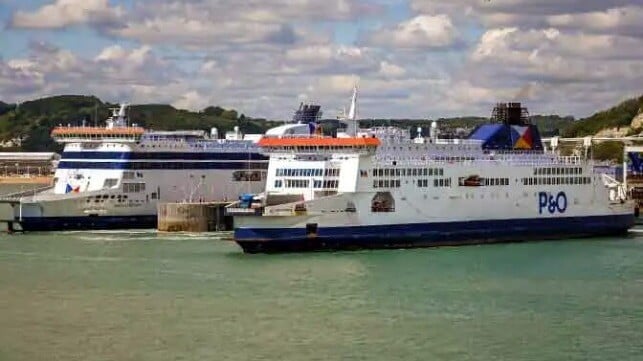UK Tries to Prevent "Fire-Rehire" Outsourcing of British Mariners' Jobs

The United Kingdom government is cracking down on rogue employers with a new bill that is designed to protect seafarers from exploitation and unfair practices. The new Employment Rights Bill contains another attempt to prevent a repeat of the 2022 unilateral sacking of about 800 seafarers by P&O Ferries, among many other provisions.
While it has many facets, the bill is particularly keen on protecting seafarers by introducing a measure that will end ‘fire and rehire’ practices except where employers genuinely have no alternative. The move is intended to prevent a repeat of the March 2022 controversy in which P&O Ferries fired its seagoing employees and replaced them with lower-cost foreign seafarers. The decision was widely condemned.
In the new bill, the government is also seeking to close loopholes exploited by P&O Ferries by toughening the collective redundancy notification requirements for operators of foreign vessels. If enacted into law, it means that operators planning to dismiss 20 or more employees will first be legally required to notify the government - or face potential prosecution or an unlimited fine.
In 2022, the UK government and union leaders were upset by P&O Ferries' decision to declare 786 seafarers redundant without prior notice or consultations with workers’ unions. The company, owned by DP World, announced plans to move to a new operating model using agency workers to crew its ships who would be paid less than UK minimum wages.
Last year, the government took the first measure to protect seafarers from unfair practices, end exploitation and improve the working conditions for seafarers by compelling shipping lines to pay seafarers better wages. The Seafarers’ Wages Act compels liners to pay seafarers working on ships that use UK ports at least 120 times a year a wage rate that is at least equivalent to the country’s national minimum wage.
Operators who fail to comply would be forced to pay a surcharge at each port call while continued non-compliance could see operators refused access to UK ports. ?
The government hopes that following the introduction of the new bill, the maritime sector will become more appealing.

that matters most
Get the latest maritime news delivered to your inbox daily.
“We’re on a mission to end exploitative work and we’re legally enshrining our promises so no employer can abuse the system to rob their workers of the basic rights and dignity they deserve. What we saw with P&O Ferries was an outrageous example of manipulation by an employer and exactly why we’re taking bold action to improve job security in the UK,” said Angela Rayner, Deputy Prime Minister.
Apart from focusing on seafarers and the shipping sector, the bill contains a total of 28 measures that broadly overhaul workers’ rights in the UK. It is being touted as representing the biggest upgrade in employment rights for a generation in the country.
